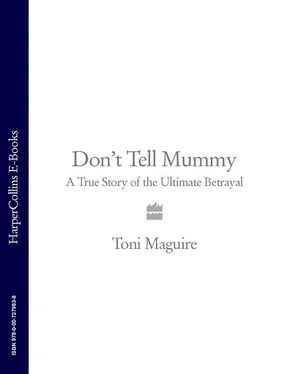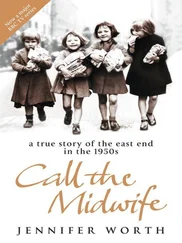Antoinette, the child, came to me in that space that twilight creates, when dreams have deserted us but consciousness still slumbers. Dressed in shades of grey, her ivory-white face gleamed up at me from under her ebony fringe.
‘Toni,’ she whispered, ‘why did you never allow me to grow up?’
‘Leave me in peace,’ I silently cried, summoning all my mental energy to push her away.
My eyes opened and now only dust motes danced in the air, but when I placed my hands on my face they came away damp from a child’s tears on adult cheeks.
‘Toni,’ she whispered, ‘let me tell you the story of what really happened. It’s time now.’
I knew that Antoinette was awake now and I would not be able to force her to resume the years of slumber that once I had banished her to. Closing my eyes I allowed her whisper to filter into my mind as she started our story.
Chapter Two
My first memories were of my mother and me living in a house with a garden in Kent, where my diminutive grandmother was a frequent and welcome visitor. Upon hearing her voice calling ‘Antoinette, where are you?’ as she pretended to search for me, I would stop whatever I was doing, rush to greet her and to be hugged in return
She had a fragrance particular to her, a mixture of face powder and lily of the valley, a scent that in the future always evoked memories of her. I would feel a glow of love between us as I breathed in that aroma.
On sunny days she would suggest leisurely walks towards the main street of Tenterdon, where we would make our way to one of the oak-beamed tearooms. My play clothes would have been exchanged for a clean dress, my face and hands wiped and my hair brushed before I was considered presentable enough for such outings.
Once she had placed high heels on her feet and picked up a matching handbag, my mother would apply bright red lipstick, fluff powder on her nose and the three of us would set off.
A black-and-white-uniformed waitress would show us to our table, where my grandmother would proceed to order afternoon tea. Scones with jam and cream, followed by individual pink and yellow iced cakes, were washed down by diluted squash for me, tea for the two adults.
My mother, wearing a square-necked dress, her head bare, would chatter companionably to my grandmother, who, always, regardless of the weather, hid her still red-gold hair under a hat. Ladies of a similar age, dressed in printed dresses topped by straw boaters or pillboxes, would greet her with smiles, remark how much I was growing and comment on the weather, a subject which, to my child’s ears, grown-ups always showed an inordinate interest in.
Another special outing was when we visited Mrs Trivett, an old school friend of my grandmother’s who, to my delight, made homemade sweets in her tiny black and white cottage. Her postage-stamp-sized garden was filled with deep raspberry pink hydrangeas, whose big lacy heads hung over the low brick wall and nodded in the breeze. To my fascination two plump gnomes sat underneath one bush, fishing rods in their hands. Perhaps it was Mrs Trivett who sowed the seeds of my mother’s affection for these garden ornaments in later life.
My grandmother would knock the freshly polished knocker against the black door and Mrs Trivett, wrapped in a voluminous apron, would open it, releasing the warm scent from the bubbling concoction, which later would become the sweets I loved.
Taking me into her kitchen she would show me how they were made. Fat strips of the sugary-smelling black and white mixture were placed over a hook by the door, then squeezed and pulled until they trebled in length. Only when their length had increased to Mrs Trivett’s satisfaction were they taken down, some to be cut into small squares, others into larger pieces which were rolled into humbugs.
Engrossed, I would watch, my cheeks bulging with some of her samples, as I rolled the one she had told me I could ‘test’ around my tongue. When the last drop of the sugary syrup had slid down my throat I would play the same game we played every time.
‘Mrs Trivett, what are little girls made of?’
I never grew tired of her reply.
‘Why Antoinette, how many times do I have to tell you? Sugar and spice, of course, and all things nice!’
I would giggle happily and she would reward me with another sweet.
On other days my mother showed me the games she’d enjoyed playing as a child; the sort of games passed down through the decades, from generation to generation. We dressed dolls and made mud pies with a small bucket and spade. But my favourite one involved using a tea set my grandmother had given me to give pretend tea parties. First I would arrange the tiny cups and saucers on a cloth, beside them the teapot and miniature milk jug. Then the matching plates would be laid in a neat row. When the cloth table was ready to my satisfaction small pebbles or flowers would take the place of sandwiches and cakes, which would then be offered to my adult playmates or my collection of dolls. Imaginary tea would be poured and passed round and dolls’ faces wiped clean of invisible crumbs.
Not only did my mother have unlimited time to show me childhood games, she used to love dressing me in pretty clothes, many of which she made herself, taking hours over the hand-stitched smocking which went across the bodice as was the fashion then.
She had a professional photograph taken of me in one of them when I was three, wearing a gingham dress edged in white with one plump leg crossed over the other, smiling confidently into the camera. I looked the loved child I knew I was.
My mother entered me for a ‘Miss Pears’ competition and to her joy I was one of the runners-up. A small, framed photograph took pride of place on the mantelshelf.
But those happy days, when we were a family of two, were numbered. For years I dreamed of them returning, but over ten years later, when they finally did, they brought no happiness.
My father stayed in the army for several years after the war and only visited us sporadically, stirring the house into an uproar for the short time he was there. To me he seemed more like an important visitor than a parent. Days before his arrival there would be a flurry of housework, cushions would be shaken, furniture polished and floors mopped. A warm smell of baking would fill the house as his favourite biscuits and cakes were made, then, on the long-awaited day, my mother would dress me in my best outfit while her prettiest was donned. Constantly gazing impatiently out of the window, we would wait for the gate to open and a loud greeting to be called, upon which my mother would rush to the door and into his outstretched arms.
My impression was of a big handsome man who made my mother laugh with happiness while a pink glow suffused her face. Presents such as silk stockings for her and chocolate for me always accompanied his arrival. My mother would unwrap hers patiently, meticulously folding the paper for future use, whilst I ripped mine open with squeals of delight. He, the benevolent visitor, would sit in the most comfortable chair and smile at our pleasure.
For my fourth birthday a bulky parcel had been torn open to reveal a large, red, stuffed felt elephant. Picking her up I thought she was more beautiful than any doll. I christened her Jumbo and for several months refused to be parted from her. Holding Jumbo by the trunk I trailed her around the house, insisting she shared my bed and taking her with me on visits.
A few months after that birthday my father announced that the idea of civilian life appealed to him. He wanted, he said, to spend more time with his wife and daughter. When my mother heard those words her face lit up and for the next few weeks I could sense her exhilaration as she waited for him to return, this time to stay.
Читать дальше












